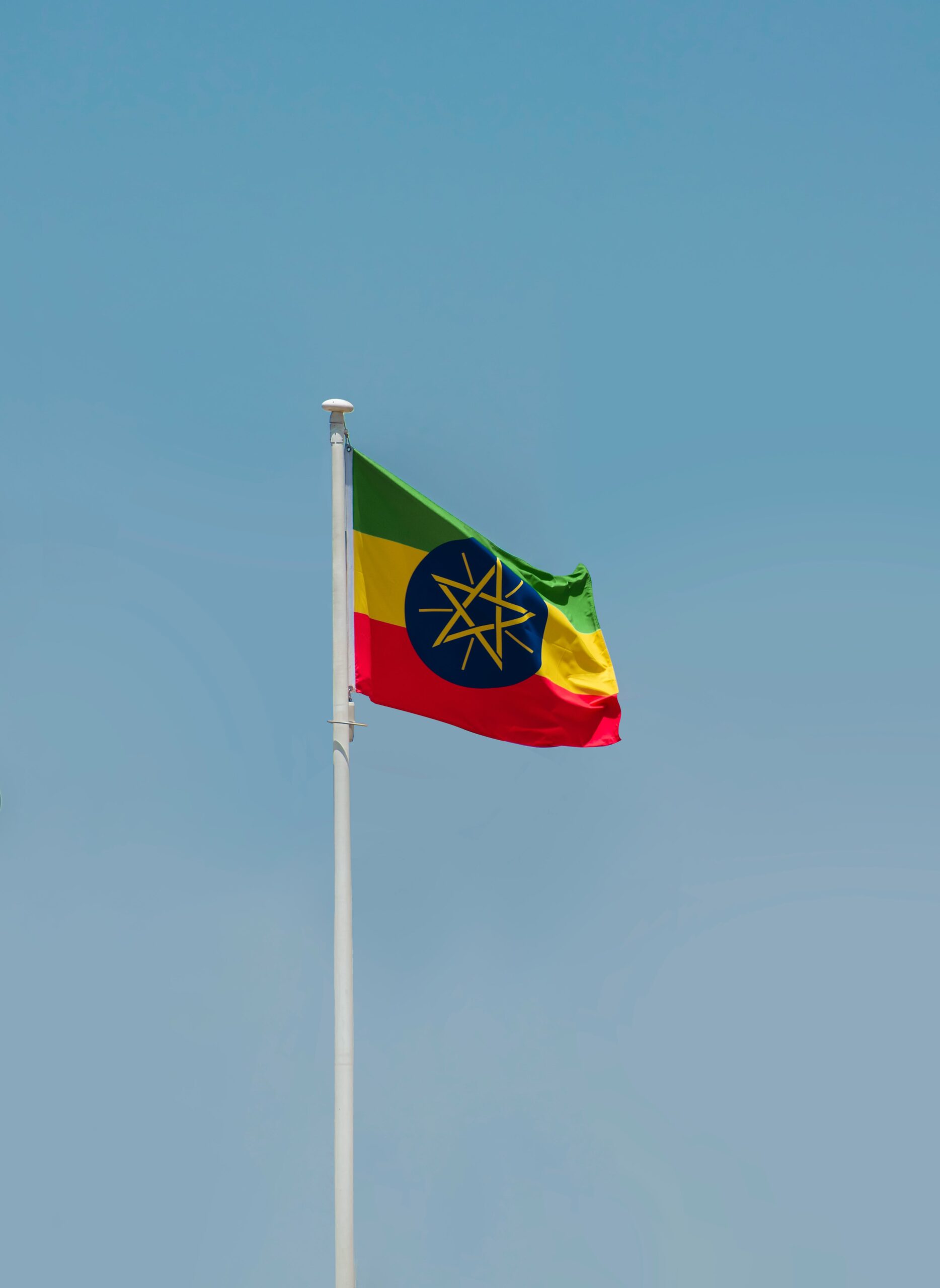Gondar Ethiopia
Gondar, Ethiopia: A Historical Overview
Located in northern Ethiopia, Gondar is a city steeped in rich history and cultural heritage. Known for its well-preserved 17th-century castles and stunning architecture, Gondar was once the capital of the Ethiopian Empire. This historical significance has earned Gondar the nickname “the Camelot of Africa.”
During the reign of Emperor Fasilides in the 17th century, Gondar became a center of arts, culture, and religious learning. The city’s most iconic landmark, Fasil Ghebbi, served as the royal enclosure and is now a UNESCO World Heritage site, attracting visitors from around the world.
Throughout its history, Gondar has been a melting pot of diverse influences, blending indigenous Ethiopian traditions with Arabian, European, and Indian architectural styles. This unique fusion is evident in the city’s intricate decorations, colorful paintings, and ornate designs.
One of the most significant periods in Gondar’s history was the reign of Emperor Tewodros II in the 19th century. Tewodros attempted to centralize power and modernize Ethiopia, leading to conflicts with foreign powers. His stronghold, the fortress of Magdala, was eventually captured by British forces in 1868.
Today, Gondar stands as a testament to Ethiopia’s storied past, with its ancient ruins, vibrant markets, and welcoming local communities providing visitors with a glimpse into the country’s heritage. The city’s historical landmarks, including Debre Berhan Selassie Church with its famous ceiling adorned with angelic faces, continue to attract history enthusiasts and cultural explorers alike.
Gondar, Ethiopia, remains a captivating destination for those seeking to immerse themselves in the country’s rich history and architectural wonders. From the majestic ruins of Fasil Ghebbi to the bustling streets filled with the aroma of traditional Ethiopian coffee, Gondar offers a unique blend of past and present that is sure to leave a lasting impression on all who visit.
Exploring the Magnificent Fasil Ghebbi in Gondar: An Architectural Marvel
Located in Gondar, Ethiopia, Fasil Ghebbi is a royal enclosure and fortress city that stands as a testament to the rich history and architectural prowess of the region. Built-in the 17th century by Emperor Fasilides and succeeding emperors, this UNESCO World Heritage Site is a must-visit for history enthusiasts and architecture aficionados alike. The site’s unique blend of Ethiopian and Arabian influences sets it apart as a cultural gem worth exploring.
As visitors step into the grounds of Fasil Ghebbi, they are greeted by a series of royal castles, churches, monasteries, and bathhouses that showcase the intricate craftsmanship and attention to detail of the bygone era. The imposing stone walls, elegant archways, and elaborately decorated facades transport visitors back in time to an era of imperial grandeur and artistic excellence.
One of the most iconic structures within Fasil Ghebbi is Fasilides Castle, a majestic fortress that served as the residence of Emperor Fasilides and his descendants. The castle’s towering walls, underground tunnels, and well-preserved chambers offer a glimpse into the opulent lifestyle of the Ethiopian royalty and the strategic military planning that went into constructing such a formidable stronghold.
Another highlight of Fasil Ghebbi is the Bath of Fasilides, a large rectangular pool fed by natural springs that was used for religious ceremonies and traditional celebrations, most notably the annual Timkat (Epiphany) festival. The surrounding grove of trees, stone pavilions, and intricate carvings make this historic site a serene and picturesque spot for visitors to immerse themselves in Ethiopia’s vibrant cultural heritage.
Visitors to Fasil Ghebbi can also explore the Debre Berhan Selassie Church, known for its stunning ceiling adorned with intricate frescoes depicting biblical scenes and angels. The church’s intimate atmosphere and spiritual ambiance offer a quiet retreat for contemplation and reflection, making it a spiritual focal point within the royal enclosure.
A visit to Fasil Ghebbi in Gondar, Ethiopia, is a journey through time and a testament to the enduring legacy of Ethiopia’s royal past. The architectural marvels, cultural significance, and historical importance of this UNESCO World Heritage Site make it a destination not to be missed for travelers seeking to delve into the rich tapestry of Ethiopian history and culture.
Traditional Cuisine of Gondar, Ethiopia: A Culinary Delight
Gondar, a city known for its rich historical heritage, offers visitors not only a glimpse into its past but also a taste of its traditional cuisine. Ethiopian cuisine is famous for its unique flavors, and Gondar holds a special place in this culinary landscape. The traditional dishes of Gondar are a delightful blend of indigenous flavors, spices, and cooking techniques that have been passed down through generations, making it a must-visit destination for food enthusiasts.
One of the signature dishes of Gondar is "Doro Wat," a spicy chicken stew that is often served with injera, a sourdough flatbread popular in Ethiopian cuisine. The rich flavors of berbere spice, a key ingredient in Doro Wat, create a tantalizing harmony that is sure to please the taste buds of anyone willing to try this local delicacy. Another popular dish is "Tibs," a flavorful stir-fry made with meat, onions, and spices, showcasing the culinary expertise of Gondar’s chefs.
In addition to these savory dishes, Gondar also offers a variety of vegetarian options that are just as satisfying. "Misir Wat," a spicy red lentil stew, and "Kik Alicha," a mild yellow split pea stew, are among the vegetarian dishes that highlight the diversity of flavors found in traditional Gondar cuisine. These dishes are not only delicious but also a reflection of the region’s commitment to using fresh, locally sourced ingredients.
To complement these delectable dishes, traditional beverages such as "Tej," a honey wine, and "Tella," a homebrewed beer, are popular choices among locals and visitors alike. These beverages provide a refreshing accompaniment to Gondar’s flavorful cuisine and offer a glimpse into the cultural significance of traditional drinks in Ethiopian society.
Exploring the traditional cuisine of Gondar is a journey of culinary discovery that promises to delight the senses and leave a lasting impression on anyone who experiences it. From fragrant spices to hearty stews, Gondar’s dishes encapsulate the essence of Ethiopian gastronomy and invite visitors to savor a taste of this vibrant culinary tradition.
Religious Celebrations and Festivals in Gondar
Gondar, Ethiopia, a city steeped in rich history and vibrant culture, celebrates a myriad of religious festivities throughout the year. One of the most significant religious events in Gondar is Timkat, the Ethiopian Orthodox celebration of Epiphany. This colorful and joyous festival commemorates the baptism of Jesus in the Jordan River and typically takes place in January. During Timkat, worshippers dressed in traditional white clothing gather around ornately decorated churches to participate in ceremonies, processions, and reenactments of baptismal rites.
Another prominent religious celebration in Gondar is Meskel, an annual festival that marks the finding of the True Cross on which Jesus was crucified, according to Ethiopian Orthodox tradition. Meskel, held in September, involves the lighting of a large bonfire called "demera" in Meskel Square, where thousands of faithful gather to witness the spectacle. The lighting of the bonfire is accompanied by hymns, prayers, and joyful dancing, creating a festive atmosphere filled with spiritual reverence.
Moreover, the celebration of Timket, the Ethiopian Orthodox Epiphany, which is observed with processions, song, and dance, is another significant religious event in Gondar. Pilgrims and locals gather at the historic Fasilides Bath to commemorate the baptism of Jesus Christ in the Jordan River. The ceremonies include priests carrying replicas of the Ark of the Covenant and important religious artifacts, with participants dressed in traditional attire, singing hymns and chanting prayers.
Additionally, Gondar hosts the Feast of St. Mary, known as Mariam Tsion, a religious festival celebrated with great fervor in the city. Pilgrims from all over Ethiopia travel to Gondar to honor the Virgin Mary and seek blessings at the Church of Debre Berhan Selassie. The church’s renowned ceiling adorned with intricate paintings of angels adds to the mystical ambiance of the festivities, which include prayers, processions, and cultural performances.
Gondar’s religious celebrations and festivals are integral to the city’s cultural identity and provide visitors with a unique opportunity to witness centuries-old traditions rooted in faith and community spirit. Whether it is the vibrant colors of Timkat, the warmth of Meskel’s bonfire, or the spiritual reverence of Timket, Gondar’s religious events showcase the enduring traditions and unwavering devotion of its people.
Sustainable Tourism Initiatives in Gondar
As the tourism industry continues to grow in Gondar, Ethiopia, there is an increasing awareness of the importance of implementing sustainable tourism initiatives to preserve the city’s cultural heritage and natural beauty for future generations. With a rich history dating back to the 17th century, Gondar is home to several UNESCO World Heritage Sites, making it a popular destination for travelers seeking to immerse themselves in Ethiopia’s vibrant history and culture.
One of the key sustainable tourism initiatives in Gondar is the promotion of responsible travel practices that minimize the negative impact on the environment and local communities. Tour operators and accommodations in the area are increasingly focused on eco-friendly practices such as reducing waste, conserving water, and supporting local conservation efforts. By supporting businesses that prioritize sustainability, visitors can contribute to the preservation of Gondar’s unique heritage and natural resources.
Community involvement is another essential aspect of sustainable tourism in Gondar. Local residents play a vital role in preserving their cultural traditions and sharing their heritage with visitors. Community-led initiatives, such as guided tours by local experts and traditional craft workshops, not only provide authentic experiences for tourists but also create economic opportunities for residents. By engaging with the local community in a respectful and meaningful way, travelers can support Gondar’s cultural heritage while fostering positive relationships with those who call the city home.
Furthermore, sustainable tourism initiatives in Gondar aim to promote cultural exchange and mutual understanding between visitors and locals. By participating in cultural events, religious celebrations, and traditional ceremonies, tourists have the opportunity to gain a deeper appreciation of Ethiopia’s diverse heritage and customs. This intercultural exchange not only enriches the travel experience but also fosters connections that transcend language and cultural barriers.
Preserving Gondar’s architectural treasures is another critical focus of sustainable tourism efforts in the city. Historic sites such as Fasil Ghebbi, the Royal Enclosure of Gondar, require ongoing conservation and restoration projects to ensure their longevity. By supporting heritage preservation initiatives through entrance fees and donations, travelers can actively contribute to safeguarding Gondar’s iconic landmarks for future generations to enjoy.
Sustainable tourism initiatives in Gondar are essential for protecting the city’s cultural heritage, supporting local communities, and promoting responsible travel practices. By prioritizing sustainability in their travel choices, visitors can make a positive impact on Gondar’s environment and society while experiencing the rich history and traditions that make the city a truly remarkable destination in Ethiopia.
Conclusion
As visitors immerse themselves in the rich tapestry of Gondar, Ethiopia, they are bound to be enchanted by the confluence of history, culture, and tradition that permeates every corner of this captivating city. From its historical depth to its architectural grandeur, Gondar offers a unique glimpse into Ethiopia’s past and present.
Exploring the magnificent Fasil Ghebbi in Gondar unveils a treasure trove of architectural wonders that stand as testaments to the city’s grandeur during the height of the Ethiopian Empire. The imposing castles, intricate artwork, and sprawling grounds of this UNESCO World Heritage Site transport visitors back in time, allowing them to envision the opulence and power that once defined this royal enclosure.
The traditional cuisine of Gondar, Ethiopia, offers a tantalizing blend of flavors and aromas that reflect the region’s cultural diversity and culinary heritage. From hearty stews and spicy sauces to injera, the beloved Ethiopian flatbread, every dish tells a story of shared meals, communal gatherings, and the warmth of Ethiopian hospitality.
Religious celebrations and festivals in Gondar provide a vibrant tableau of faith, devotion, and cultural pride. Whether witnessing the colorful processions of Timkat or joining in the joyous music and dance of Meskel, visitors are invited to partake in the rhythmic pulse of Gondar’s spiritual life and immerse themselves in the traditions that have shaped the city’s identity.
Sustainable tourism initiatives in Gondar are paving the way for a more responsible and community-focused approach to travel in this historically rich region. By promoting eco-friendly practices, supporting local artisans and businesses, and engaging with the cultural heritage of Gondar in a respectful manner, tourists can contribute to the preservation and prosperity of this enchanting city for generations to come.
In Gondar, every stone tells a story, every dish carries a legacy, and every festival echoes with the rhythms of a resilient and vibrant community. As travelers navigate the cobblestone streets, mingle with locals in bustling markets, and gaze upon the ancient wonders that dot the landscape, they are invited to become part of the living tapestry of Gondar, Ethiopia—an experience that is as unforgettable as it is enriching.






